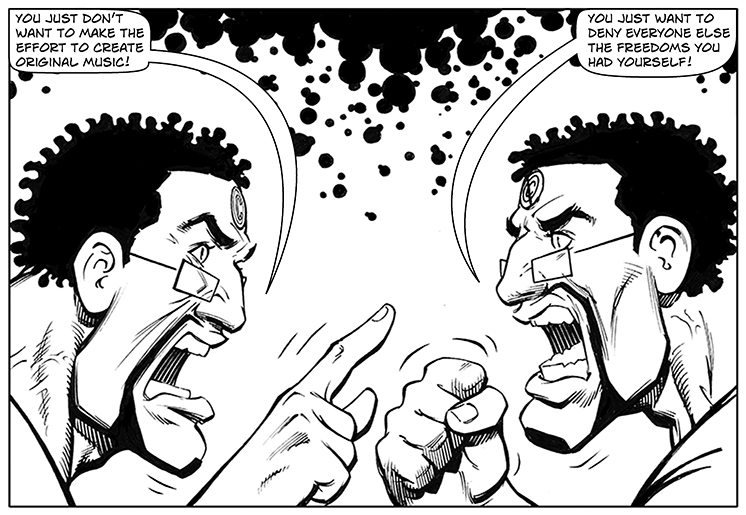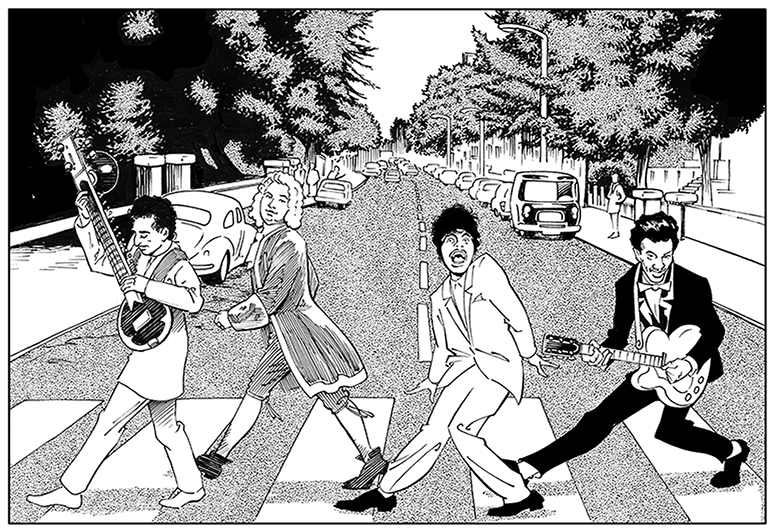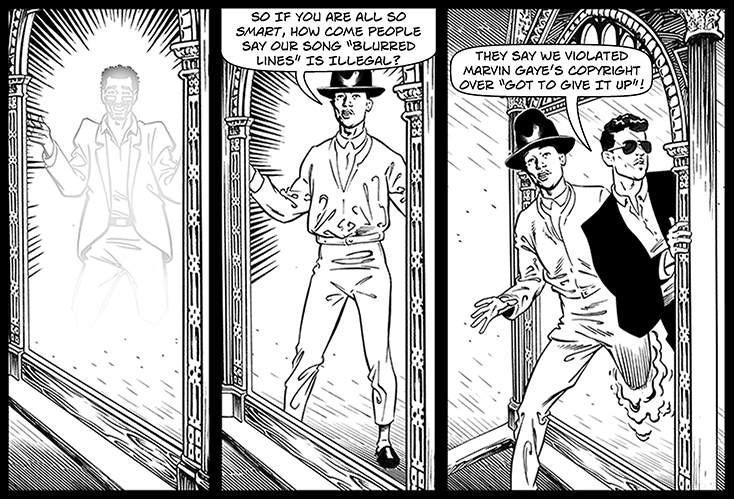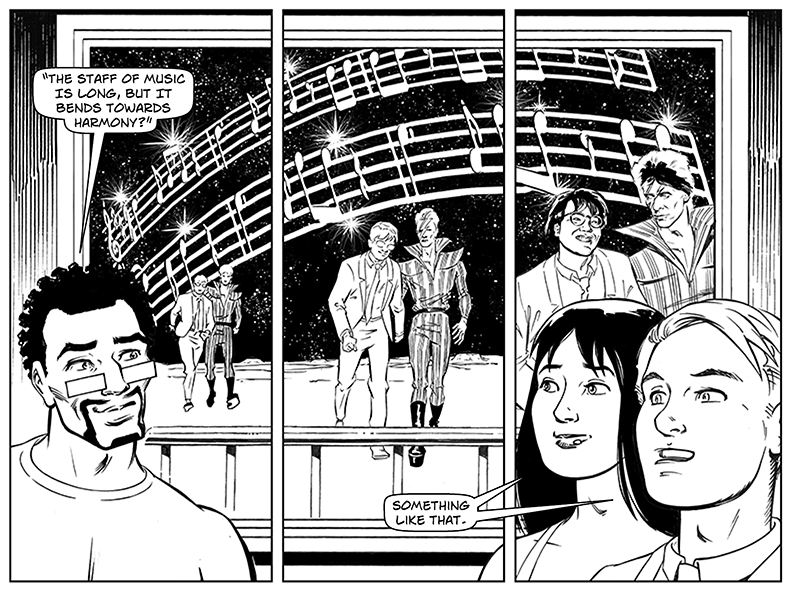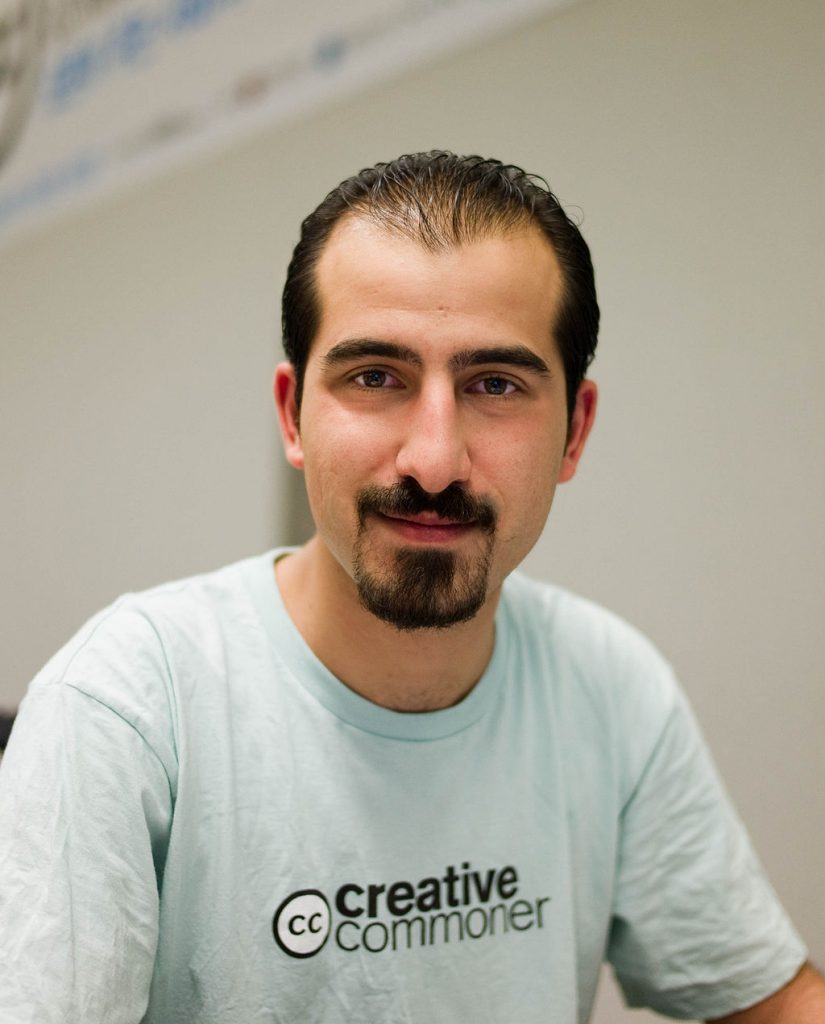Digital Rights Organisations Tell NAFTA Negotiators: Move Talks Out of the Shadows
vendredi 18 août 2017 à 18:31Today Creative Commons and over two dozen civil society and digital rights organisations released a letter raising concerns about the potential impact of the re-negotiation of the North American Free Trade Agreement (NAFTA) on access to information, digital rights, and the open internet. The letter was released this week because trade negotiators from Canada, Mexico, and the United States are meeting this week in Washington, D.C. for the opening round of the renewed negotiation process. In June we asked whether re-negotiating the agreement is opening Pandora’s Box.
In the letter, we demand that negotiators immediately reform the trade negotiation process to make the proceedings more transparent, inclusive and accountable. We believe it is unacceptable that binding rules on intellectual property, access to medicines, and a variety of other trade-related sectors will be reworked within a process that is inaccessible and often hostile to input from members of the public.
We warn against making changes to the existing rules around intellectual property, noting that in most recent multilateral trade negotiations there has been a significant push to drastically increase copyright enforcement measures, lengthen copyright terms, and demand harsh infringement penalties without corresponding provisions to protect the interests of users of copyright works. But if intellectual property is to be addressed within NAFTA, it is critical that user rights are balanced alongside the extensive protections already granted to rights holders. There must be active and enforceable mechanisms to protect copyright exceptions and limitations, including fair use and fair dealing regimes. It’s critical that the negotiating parties resist extending copyright terms (which do nothing to promote the creation of new works).
As the NAFTA talks unfold, we stand by our belief that these negotiations must be reformed to fully support a process that is transparent, inclusive and accountable. If negotiators wish to address copyright concerns, they should do so not by increasing protectionist measures that will benefit only small number of powerful rights holders. Instead, they should advocate for balanced, progressive provisions that empower new creators and users and protect the public good.
Transparency, Digital Rights, and NAFTA (English)
Transparencia y los derechos digitales en el TLCAN (Español)
Transparency, Digital Rights, and NAFTA
We, the undersigned, are Internet freedom and public interest advocates drawn from all three nations party to this agreement, who are dedicated to the rights of all peoples to access cultural and educational resources, to enjoy a free and open Internet, and to benefit from open and needs-driven innovation.
As the United States, Mexico and Canada begin talks on the renegotiation of the North American Free Trade Agreement (NAFTA) this week, we write to share our concerns about NAFTA’s potential impact on the critical functions of the Internet and its potential to threaten access to information, the dissemination of news, cultural exchange and democratic organizing.
First and foremost, we call upon the United States, Mexico and Canada to meaningfully reform trade negotiation processes to make them more transparent, inclusive and accountable. It is unacceptable that binding rules are created in a forum that is inaccessible and often hostile to input from members of the public. Specifically, we would like to see: public release of text proposals by governments before negotiations, with clear processes established for members of the public to comment on them; consolidated versions of negotiating texts published between negotiating rounds; locations and times of key meetings announced well ahead of time; and the establishment of consultative trade groups that are broadly representative of both business and public interest stakeholders with a commitment to conducting deliberations openly.
Without these reforms, public trust in trade processes will continue to wane, and governments will face significant popular resistance to agreements based on process alone.
We also share concerns about the suitability of trade mechanisms to create prescriptive policies that govern Internet use, cultural sharing and innovation. In general, developments in technology happen quickly, and trade processes that do not keep pace with technological and social advancement may inhibit each of our respective governments from making necessary and appropriate changes to related rules, especially with regard to intellectual property regulations that impact our rights to culture and free expression.
With specific regard to including intellectual property rules in trade agreements, when these policies have been included in past agreements, we have seen that there is a significant push to drastically increase enforcement measures for rightsholders, lengthen copyright terms, and demand harsh infringement penalties, without corresponding provisions to protect the interests of users of copyright works.
We do not believe these types of rules belong in trade agreements, and given the ambitious timeline for a completed NAFTA renegotiation, the inclusion of prescriptive IP provisions will prove to be a stumbling block for governments seeking to create public consensus around a mutually beneficial agreement.
However, if intellectual property is addressed within NAFTA, it is critical that user rights are balanced alongside the demands of rightsholders: there must be active and enforceable mechanisms to protect exceptions and limitations regimes, fair use/fair dealing and the public domain. Parties should resist extensions in copyright terms that punish new artists and creators, and there should be no increased criminalization for digital rights management circumvention.
Further, any rules aimed at promoting the free flow of data across the Internet and reducing barriers to trade in digital products and services must preserve countries’ flexibility to robustly protect individual privacy and security, including the ability to place limits on cross-border data transfers or on the protection of trade secrets.
A renegotiated NAFTA should not be developed in secret, and must not lead to a rewriting of intellectual property rules that further tilts the balance away from the public interest or undermines the free, open and interoperable Internet.
Signatories
Electronic Frontier Foundation
Creative Commons
OpenMedia
R3D: Red en Defensa de los Derechos Digitales
Public Interest Advocacy Centre
Derechos Digitales
Just Foreign Policy
Public Knowledge
Media Alliance
Engine
Data Roads Foundation
Public Citizen (Access to Medicines, Innovation and Information)
Red Mexicana de acción frente al Libre Comercio (RMALC)
Common Frontiers
SPARC
Voices-Voix
May First/People Link
Internet Archive
SonTusDatos (Artículo 12)
STRM
Horizontal
Authors Alliance
Sierra Club Canada Foundation
Samuelson-Glushko Canadian Internet Policy and Public Interest Clinic (CIPPIC)
National Family Farm Coalition
The post Digital Rights Organisations Tell NAFTA Negotiators: Move Talks Out of the Shadows appeared first on Creative Commons.
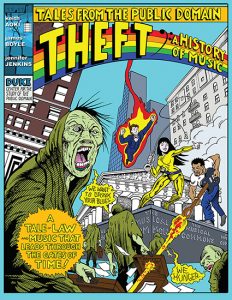 Theft! A History of Music is the newest comic from Jenkins and Boyle, the team behind the 2006 fair use comic Bound by Law. Theft was written in collaboration with the late illustrator and academic Keith Aoki; Boyle and Jenkins developed the graphic designs that were illustrated and inked by Ian Akin and Brian Garvey. The book is licensed under CC BY-NC-SA 3.0 and is
Theft! A History of Music is the newest comic from Jenkins and Boyle, the team behind the 2006 fair use comic Bound by Law. Theft was written in collaboration with the late illustrator and academic Keith Aoki; Boyle and Jenkins developed the graphic designs that were illustrated and inked by Ian Akin and Brian Garvey. The book is licensed under CC BY-NC-SA 3.0 and is 